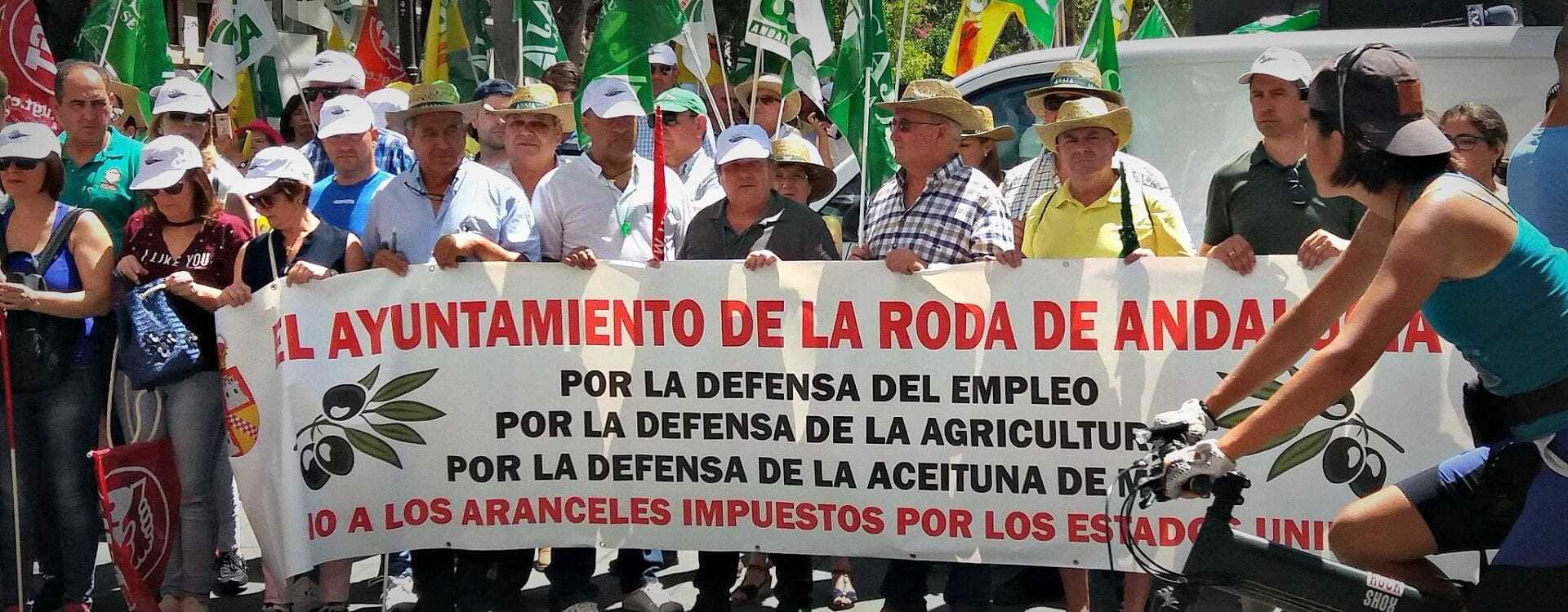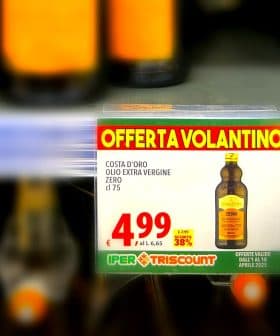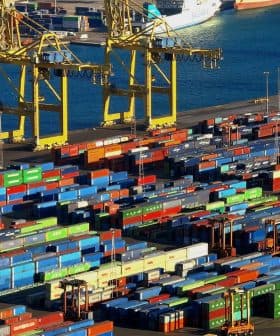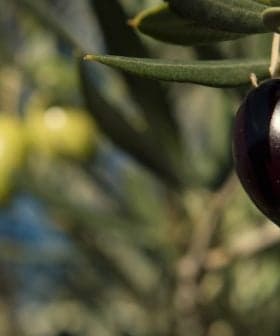Hundreds Protest Proposed Olive Tariffs in Spain

Hundreds of olive farmers and business representatives gathered in front of the United States consulate in Sevilla, Spain to protest proposed American tariffs on Spanish olives, which are being called “unjust” and “abusive” due to concerns about the impact on exports and employment in the region. If the US International Trade Commission decides to enact the proposed tariffs, Spanish olive imports to the US could face duties of up to 27 percent, leading to potential job losses and economic repercussions in the region.
Hundreds of olive farmers, oil producers and business representatives gathered in front of the United States consulate in Sevilla, Spain last Thursday to protest proposed American tariffs on Spanish olives.
We reiterate our absolute rejection of the fixation of any type of tariff on table olives.
The protestors gathered to denounce the planned tariffs, calling them “unjust” and “abusive” as well as raising concerns about their potentially disastrous repercussions for the region’s exports and employment.
The tariffs are set to be discussed by the U.S. International Trade Commission (USITC) this week and, if the commission decides to enact them, will come into force later this month. In 2017, Spanish olive exports to the US totaled about $67 million.
“We are very disappointed with the US Department of Commerce’s decision to impose anti-subsidy and anti-dumping duties on Spanish table olive imports, especially since the product is very popular amongst US consumers,” José María Castilla, a lobbyist for the national wing of the Association of Young Farmers (ASAJA), said. “It is unjustified and disproportionate and it goes against our common agricultural policy.”
Miguel López, the Secretary-General of COAG Andalusia, said that 8,000 jobs are directly at risk and two million more are indirectly at risk because of the proposed tariffs. Already, he said, Agro Sevilla has laid off some of their employees.
Reiteramos nuestro rechazo absoluto a la fijación de cualquier tipo de arancel a la aceituna de mesa, que ahora EEUU ha incrementado hasta el 34,75%. Es una medida injusta que provocaría grandes pérdidas en el sector andaluz que genera 2 millones de jornales y 8.000 empleos.
— Rodrigo Sánchez Haro (@rodrigosanhar) June 12, 2018
Junta insiste en que el arancel a la aceituna de mesa es “desproporcionado” y pide al Gobierno que defienda al sector https://t.co/z56iEjUSCh vía @epandalucia
— José Muñoz (@pepemsanchez) January 29, 2018
To drive the point home and put a human face on these layoffs, López invited a young man, identified only as the son of Raquel, up onto the stage during the protest.
“Because of the tariffs and after six years in the company, they have left him unemployed and he has had to leave Andalusia to find work,” López said. “He had a life project and everything has been broken.”
López insisted that Spanish olive producers are in line with European Union and World Trade Organization rules and called for the European Union and Spanish government to defend the sector from what he termed “arbitrary” tariffs.
“Faced with this attitude that [U.S. President Donald] Trump is maintaining against all imports, and because this violates all international agreements, the European Commission has to position and stand up for itself already,” he said. “We also have to be defended.”
The European Commission has already condemned the tariffs on Spanish olives with a spokesperson labeling them “protectionist” and promising action from the European Trade Commission.
The proposed tariffs stem from anti-dumping complaints lodged by two California companies (Bell-Carter Foods, Inc and Musco Family Olive Co) last year. They have been compounded by anti-subsidy charges from the US Department of Commerce, which argues that Spanish olive farmers and packagers also benefit from “unfair subsidies”.
If the USITC decides to ratify the proposed tariffs, which most trade observers believe is highly likely, then import duties on Spanish olives will rise up to 27 percent on July 24. The tariffs are said to cover all types of Spanish olives, including all shapes, sizes and colors; pitted and unpitted; and whole, sliced, minced and wedged.
“The Department of Commerce will ensure a full and fair assessment of the facts, and, if the rules are being broken, will act swiftly to halt any unfair trade practices,” US Secretary of Commerce Wilbur Ross said. “The United States is committed to a free, fair and reciprocal trade with Spain.”
Antonio de Mora, the Secretary-General of the Spanish Association of Exporters and Industrialists of Table Olives (ASEMA) believes that facts will trump feelings and instead of attending the protests, has been hard at work preparing a legal case against the tariffs.
“ASEMESA is preparing its defense in contact with the national and European administrations, with the assurance that the arguments on which these accusations are based are false, for which reason we are gathering all the necessary information and evidence,” he said.









